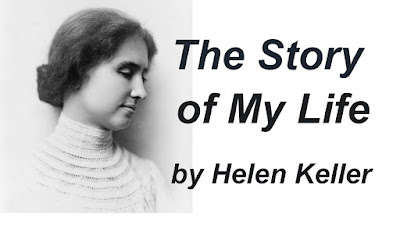The Story of My Life: Ch 18-20
Answer the following question in 200 -250 words.
1. Why did Helen perform better in preliminary examinations than the Finals for Radcliffe?
Helen did not have the advantage at the finals that she got at the preliminary
examination.
During the preliminary examination, Mr. Gilman read the examination paper to her,
and she wrote the answers. He read out to her the answers which she wrote and if she
wanted any changes, he inserted the changes.
At Radcliffe no one read the papers to her after they were written. She did not have
the opportunity to correct errors unless she finished before the time was up. In that
she could only correct such mistakes that she could recall in the few minutes allowed,
and make notes of those corrections at the end of the paper.
Secondly, in the preliminaries, she offered subjects, some of which she was in a
measure familiar before her work in the Cambridge school. At the beginning of the
year she had passed examinations in English, History, French and German, which Mr.
Gilman gave her from previous Harvard papers.
Helen wrote her papers using a typewriter. She wrote the papers in a separate
examination hall otherwise the noise would disturb the other girls.
2. What system did Helen’s tutor follow? How did Helen like the system?
Mr. Keith gave lessons five times a week, in periods of about an hour for eight months.
He explained each time what she did not understand in the previous lesson, assigned
new work, and took home with him the Greek exercises which she had written during
the week on her typewriter, corrected them fully, and returned them to her.
Her preparation for college went on without interruption. She found it much easier
and pleasanter to be taught alone than to receive instruction in class. There was no
hurry, no confusion. Her tutor had plenty of time to explain what she did not
understand, so she did better work than she ever did in school.
She still found difficulty in mastering problems in mathematics But, Mr. Keith made
interesting. He succeeded in whittling problems small enough for Helen to grasp. He kept her mind alert and eager, and trained it to reason clearly, and to seek conclusions
calmly and logically, instead of jumping wildly into space and arriving nowhere. He
was always gentle and forbearing, no matter how dull she might be.
3. What difficulties did Helen encounter while taking her final examinations for Radcliffe
college?
The college authorities did not allow Miss Sullivan to read the examination papers to
Helen. One of the instructors at the Perkins Institution for the Blind, who was a
stranger to her, was employed to copy the papers for her in American braille. The
braille worked in the languages, but difficulties arose in geometry and algebra.
She was familiar with all literary braille in common use—English, American, and New
York Point; but the various signs and symbols in geometry and algebra in the three
systems were very different, and she had used only the English braille in her algebra.
Mr. Keith and Helen went over to the college a little before the examination began,
and had the instructor explain more fully the American symbols yet Helen found the
braille confusing, and could not fix clearly in her mind what she was reading.
She could not see what she wrote on her typewriter. She had always done her work in
braille or in her head. Mr. Keith had relied too much on her ability to solve problems
mentally, and had not trained her to write examination papers. Her work was slow; she
had to read the examples over and over before she could form any idea of what to do.
The administrative board of Radcliffe did not understand the peculiar difficulties she
had to surmount. But, she had the consolation of knowing that she overcame them all.
4. What are the important lessons that Helen had learnt while at college? What was the chief
cause of obsessive fear or anxiety in college?
Helen had learnt many things that she would never have known had she not tried the
experiment of going to college. One of them is the precious science of patience, which
teaches us that we should take our education as we would take a walk in the country,
leisurely; our minds hospitably open to impressions of every sort. Such knowledge
floods the soul unseen with a soundless tidal wave of deepening thought. "Knowledge
is power." Rather, knowledge is happiness, because to have knowledge—broad, deep
knowledge—is to know true ends from false and lofty things from low. To know the
thoughts and deeds that have marked man's progress is to feel the great heart-throbs
of humanity through the centuries; and if one does not feel in these pulsations a
heavenward striving, one must indeed be deaf to the harmonies of life. The examinations were the chief bugbears of her college life. Although she had faced them many times and cast them down and made them bite the dust, yet they rise again and threaten her until she felt her courage oozing out.




Mam please
ReplyDeletesend the remaining 3 chapter